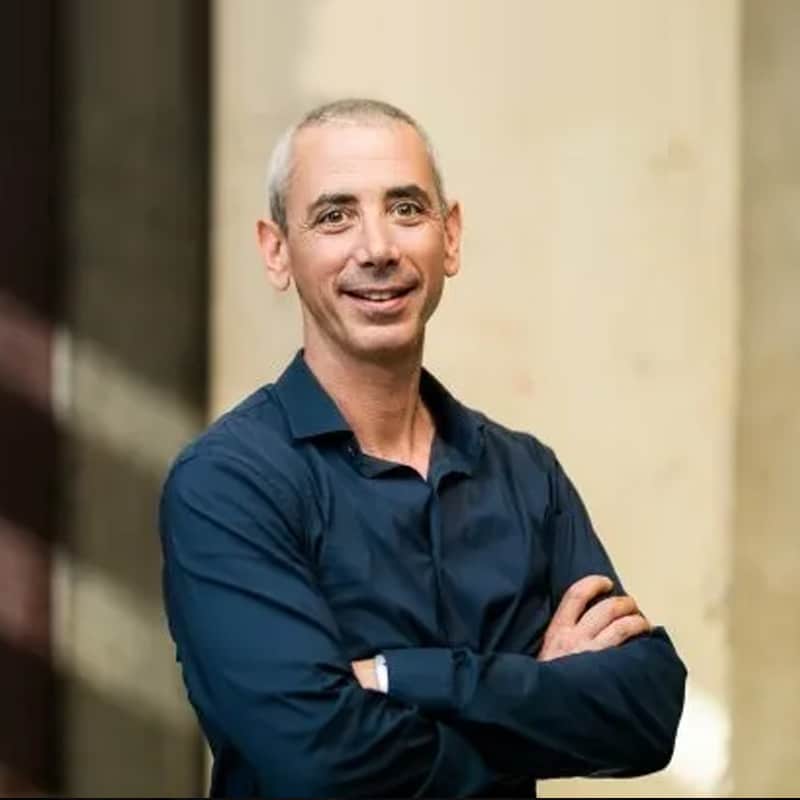
#63
The Art of the Impossible
Steven Kotler
Steve Kotler is one of the world’s leading experts on human performance. He is a New York Times bestselling author, an award-winning journalist, and the Executive Director of the Flow Research Collective. He is the author of ten bestsellers, including ‘The Art of Impossible’, ‘The Future is Faster Than You Think’, ‘Stealing Fire’, and ‘Abundance’. His work has been nominated for two Pulitzer Prizes, translated into over 50 languages, and has appeared in over 100 publications, including the New York Times Magazine, Wired, Atlantic Monthly, Wall Street Journal, TIME, and the Harvard Business Review.
A lifelong environmentalist and animal rights advocate, Steve is the cofounder of Planet Home, a conference, concert, and innovation accelerator focused on solving critical environmental challenges, and the cofounder of The Forest + Fire Collective, a network of individuals, organizations and institutions dedicated to ending catastrophic wildfire and restoring forest health to the American West. Alongside his wife, Joy Nicholson, he is also the co-founder of Rancho de Chihuahua, a hospice care and special needs dog sanctuary.
Subscribe
Find the show on your favourite player
Summary
02:37 How Steve got into performance and flow
- He started his career as a journalist in the 1990s and he was fascinated by behavioral neuroscience
- He was covering action sports in journalism
- Action sports in the 90s was the “great era of the impossible” and Steve noticed that the top athletes would get in to the flow state
- Steve was drawn to the question, “what does it take to do the impossible in other domains, beyond action sports?”
- “Flow is the commonality in all peak performance”
06:22 What makes a person become interested in becoming extraordinary?
- Often people have disadvantages that they work through by working on the the ‘small impossibles’ first
- “We are all capable of so much, but our potential is invisible”
- You can only find out what you are capable of by pushing your skills to the edge
09:08 Training the flow state
- Meditation has hit the mainstream – flow awareness will be the next big thing
- Flow is an innate state, we just need to learn how to train it
- Steve’s average client gets an 80% boost in flow from his training
20:25 Why starting is the hardest part on the path to mastery
- Always “crawl, walk, run”
- Peak performers don’t find the shortcuts
- “All you’ve got to do is your inch”
23:49 The role of grit
- There are six ‘grit skills’: patience, discipline, perspective, tenacity, relentlessness, and unwavering pursuit
- Grit is what you need when you have no motivation
- Grit is very trainable and has a high correlation with flow
- Many people begin with extrinsic motivation (e.g. the need to get paid, etc), but you need to nurture your intrinsic motivation (e.g. curiosity) so you don’t get burnt out
- “Grit without flow is burnout”
29:00 What is the flow state?
- The scientific definition of flow is: “an optimal state of consciousness where we feel our best and perform at our best”
- We don’t ‘feel’ peak performance, but we feel a sense of control and mastery when we are at such a level of performance
31:07 What skills does flow amplify?
- In flow you see unconscious processes
- Flow enables you to be “wildly creative” whilst being very constrained, like freeform jazz
- American jazz musician Charles Mingus once said: “you need to know the notes to forget the notes”
36:03 The connection between flow and peak performance in terms of deep focus
- Flow only shows up on the focused task at hand
- You need to be focused on the process and not the outcome
- “Nothing happens in this world without our attention”
39:19 How to get in a flow state
- Start your day doing the hardest task first and block out 90 – 120 minutes to perform the task
- It’s important to not get distracted, so practice distraction management
- You need at least 90 minutes to be in a flow state
- Push yourself outside of your comfort zone when tackling the task without overstretching yourself
- When Steve writes a book, he starts off with writing 500 words a day and towards the end he pushes himself and writes 1,000 words a day
46:21 The role of unfocused attention and daydreaming
- Mind wandering is great, just make sure it doesn’t get too negative
- The default mode network of the brain is best known for being active when a person is not focused on the outside world and the brain is at wakeful rest, such as during daydreaming and mind-wandering
49:28 What is macro flow?
- The brain is hard-wired for spiritual experiences
- Technologies such as VR helps enable people to get closer to mystical experiences
- Micro flow is when some flow characteristics go together, e.g. when you go for a run
- Macro flow is a combination of all flow characteristics and can feel like a mystical, out of body experience
Links Mentioned: